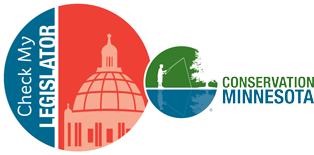 Minnesota is a hotbed for clean energy business growth. It’s hard to understand why some legislators are saying, “Slow down.”
Minnesota is a hotbed for clean energy business growth. It’s hard to understand why some legislators are saying, “Slow down.”
The state’s clean energy market is growing rapidly. Employment in clean energy businesses – such as solar and wind installations, biofuels production capacity and energy efficiency – surged by 78 percent between January 2000 and the first quarter of 2014. These are good jobs – average annual wages were more than $71,000 in 2013. That same year, Minnesota employers in the clean energy economy paid more than $1 billion in wages.
Which is why I’m scratching my head to understand why legislators have introduced a bill designed to create gridlock and slow down this progress. The bill, which has a hearing in the Minnesota House today, would slow down Minnesota’s implementation of the Clean Power Plan by adding an unneeded layer of legislative approval and the partisanship that comes with it.
As part of the Clean Air Act, Congress has required that the EPA take steps to reduce air pollution that harms the public’s health. The Clean Power Plan helps fulfill that requirement by reducing dirty carbon pollution from power plants. The EPA is giving states tremendous flexibility in deciding how to best meet these pollution reduction goals.
Because of our success in clean energy, the Clean Power Plan is an opportunity for Minnesota to press our advantage and create even more high paying jobs. If the bill (HF 333) passes, legislative gridlock would risk Minnesota losing our opportunity to decide for ourselves. Instead, we could end up with a “Federal Implementation Plan” designed by Washington.
This is cut-and-paste legislation, written by people who don’t live in Minnesota, and who certainly don’t have our state’s best interests at heart. It’s odd to see legislators act against the interests of Minnesota businesses. That said, there’s a reason why this legislation is being introduced here. We have one of the strongest clean energy economies in the nation – and there are people with a vested interest in keeping Minnesota dependent on dirty fuels imported from other states.
Rather than giving power to outsiders, perhaps our legislators should support the clean energy employers who are growing jobs while protecting our state’s precious rivers, lakes and streams.





